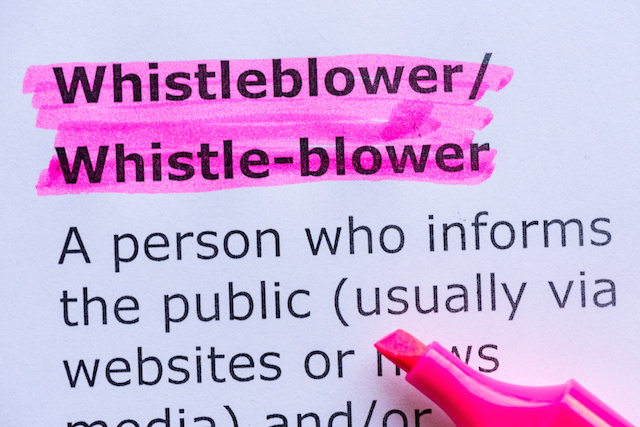Choosing to do what’s right is not always an easy task. Deciding to become a whistleblower is one of the most difficult and stressful decisions you may ever make. Fear of retaliation or persecution is one of the biggest roadblocks standing in the way of whistleblowers exposing the critical information that they know.
Thankfully, you don’t have to go through the process alone. Our experienced whistleblower attorneys are here to assist you every step of the way. Additionally, the law is on your side, and there are several laws aimed at protecting whistleblowers when they make the choice to come forward and do the right thing. With these protections in place, you can rest easier knowing that your rights and interests are being safeguarded.
The False Claims Act
The most well known of the whistleblower protection statutes is the False Claims Act, and its provisions are strong. Even better, the statute extends its protections beyond whistleblowers to those who investigate, initiate, assist, or testify in a whistleblower action.
Under the terms of the False Claims Act, employers are prohibited from acting “in retaliation for any lawful act taken by the employee in furtherance of an action under the False Claims Act.” This means that any “employee, contractor, or agent” is protected by law if that person is “discharged, demoted, suspended, threatened, harassed, or in any other manner discriminated against in the terms and conditions of employment because of lawful acts done.”
The penalties for retaliating against an employee for engaging in acts protected by the Fair Claims Act are strict. Victims of retaliation are entitled to:
- Reinstatement at their previously held seniority status;
- Two times the amount of back pay owed;
- Interest on any back pay; and
- Compensation for any “special damages” resulting from the retaliation, including litigation costs and attorney fees.
These provisions allow a whistleblower to keep his or her job, while discouraging employers from taking retaliatory action against those who properly expose fraud.
Other Whistleblower Protection Provisions
Additional statutes exist that afford protection to whistleblowers in certain lines of employment or who are reporting specific kinds of fraud. Whistleblowers in the following scenarios can turn to the law for protection:
- Federal Employees – The Whistleblower Protection Act of 1989 protects federal government employees who report agency misconduct. The law prohibits an agency from taking or threatening to take retaliatory action because a federal employee discloses agency wrongdoing. The Whistleblower Protection Enhancement Act of 2012 expanded these protections by, among other things, broadening the types of whistleblower disclosures covered, extending the protections to employees of the intelligence community, and addressing retaliation in the form of threats to withdraw security clearance.
- Securities and Commodities Fraud Whistleblowers – In 2010, Congress created both the SEC Whistleblower Program and the CFTC Whistleblower Program as part of the Dodd-Frank Act. Modeled on the False Claims Act, these programs encourage whistleblowers to come forward with allegations of securities or commodities fraud by allowing rewards of 10-30% of monetary sanctions in excess of $1 million imposed by the SEC or CFTC due to credible evidence provided. The Act also created a cause of action for whistleblowers who are victims of retaliation, allowing them to seek reinstatement, double back pay, and attorney fees and other costs.
Knowing you will be protected is an important factor in deciding to come forward as a whistleblower. Having the right attorney on your case will ensure that you’re afforded all of the protections the law allows. Kreindler & Associates is dedicated exclusively to protecting and helping whistleblowers who make the courageous decision to expose fraud. If you are considering making a whistleblower claim or feel that you’ve been the victim of wrongful retaliation for having done so, contact us today. We’re here to answer your questions and guide you through the whistleblowing process.




